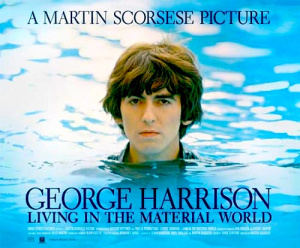Money, Fame, and Influence: HBO’s Documentary on Former Beatle George Harrison (Part 1)
Students in a college ethics course I was teaching once asked me if I would like to be rich, famous, and influential. I replied, “Only if the money, celebrity, and power could come as a result of me being just, wise, and good.”

An avid Beatles fan as far back as the mid-1960s, I enjoyed the documentary. I’ve always appreciated George’s creative guitar riffs and his soft singing voice that harmonized so well with the other members of the band. I also appreciated the film’s honesty. It depicts Harrison as a talented and popular musician who, nevertheless, remains conflicted about his fame and fortune and is also morally flawed. The film also traces Harrison’s career as a Beatle and as a solo artist, when his music and life were deeply influenced by his interest in mystical Indian philosophy.
Reflections on the Documentary: Fortune—Is that All there Is?
One provocative philosophical issue that jumped out at me in part 1 of the documentary was The Beatles’ reaction to their newfound wealth. There’s a great interview scene where Harrison and John Lennon are asked if the money they’ve made as members of The Beatles has made them happy. George provides this insightful response:
By having the money we found that money wasn’t the answer. Because we had lots of material things that people spend their entire life to try and get. We managed to get them at quite an early age, and it was good, really, because we learned that that wasn’t it. We still lacked something and that thing sometimes is the thing that religion is trying to give people.
The Beatles achieved great wealth early in their career but soon realized that money “can’t buy me love.” Harrison, in particular, also noticed that the British “taxman” took an enormous bite out of his Beatles paycheck. It is estimated that Harrison’s estate was worth $90–100 million at the time of his death.1
It seems that in pursuing a genuinely reflective and fulfilled life, money, though certainly necessary, is not sufficient. Wealth can be an instrumental good (a means to attain the good) but it is not an intrinsic good (a good in itself).
Beatle George was certainly rich, famous, and influential beyond his dreams, but it still wasn’t enough. I think of Jesus’ words in Matthew 16:26: “What good will it be for someone to gain the whole world, yet forfeit their soul? Or what can anyone give in exchange for their soul?”
To be continued…
Have you ever wanted something bad (real bad) but when you finally got it realized it wasn’t all you thought it was?
Endnotes
- Marc Shapiro, Behind Sad Eyes: The Life of George Harrison (New York: St. Martin’s, 2002), 175.




